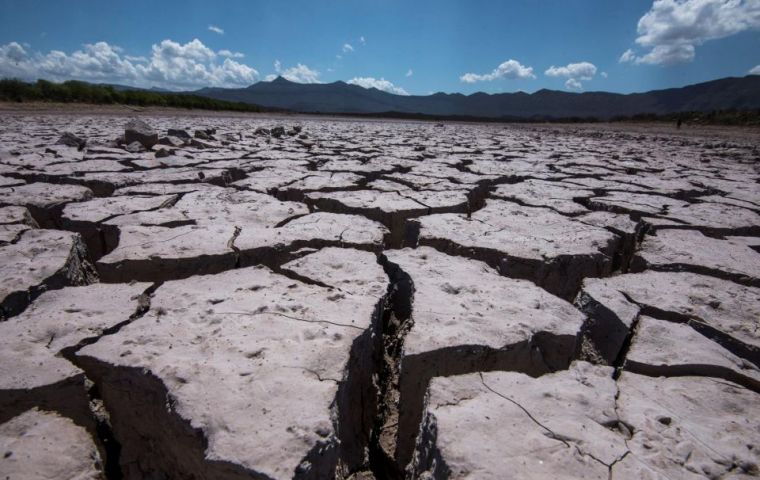MercoPress. South Atlantic News Agency
Chile: Santiago braces for emergency water rationing
 Climate change is here to stay, Orrego warned
Climate change is here to stay, Orrego warned Local authorities in the Chilean capital have announced a water-rationing program to cope with shortages stemming from 13-year-old droughts, it was announced Monday in Santiago.
“We have to prepare for the fact that there will not be enough water for all of us who live here,” said Governor Claudio Orrego upon announcing an unprecedented set of drastic measures.
“A city cannot live without water,” Orrego said during a press conference. “We are in an unprecedented situation in Santiago's 491-year history where we have to prepare for there not being enough water for all of us who live here.”
The plan features a four-tiered alert system that ranges from green to red and begins with public service announcements, moves to restricting water pressure, and ends with rotating water outages of up to 24 hours for approximately 1.7 million customers.
The warning system is based on the capacity of the Maipo and Mapocho rivers that supply the capital with most of its water and have seen water levels decline as the drought progresses.
The government estimates that the country's water availability has fallen by between 10% and 37% in the last 30 years and could fall by another 50% in northern and central Chile by 2060.
The water deficit of the rivers, measured in liters per second, will determine whether cuts will be made every 12, six, or four days. In each case, a different area would face water cuts each day.
“This is the first time in history that Santiago has a water rationing plan due to the severity of climate change,” Orrego said.
“It is important that citizens understand that climate change is here to stay. It's not just global, it's local,” he went on.
The Chilean authorities also explained that certain areas in downtown Santiago would be exempted from the rationing and so will those parts which are fed by well water or other sources besides the two rivers.
The emergency program covers 142,613 households supplied by the Mapocho River, which crosses the city from east to west, and another 1,545,000 households supplied by the Maipo River, which feeds the southern districts of the city, home to 7.1 million inhabitants.
The plan would come into effect in the event that the authorities decree rationing, a scenario that depends on the rains that fall during the winter.




Top Comments
Disclaimer & comment rulesCommenting for this story is now closed.
If you have a Facebook account, become a fan and comment on our Facebook Page!